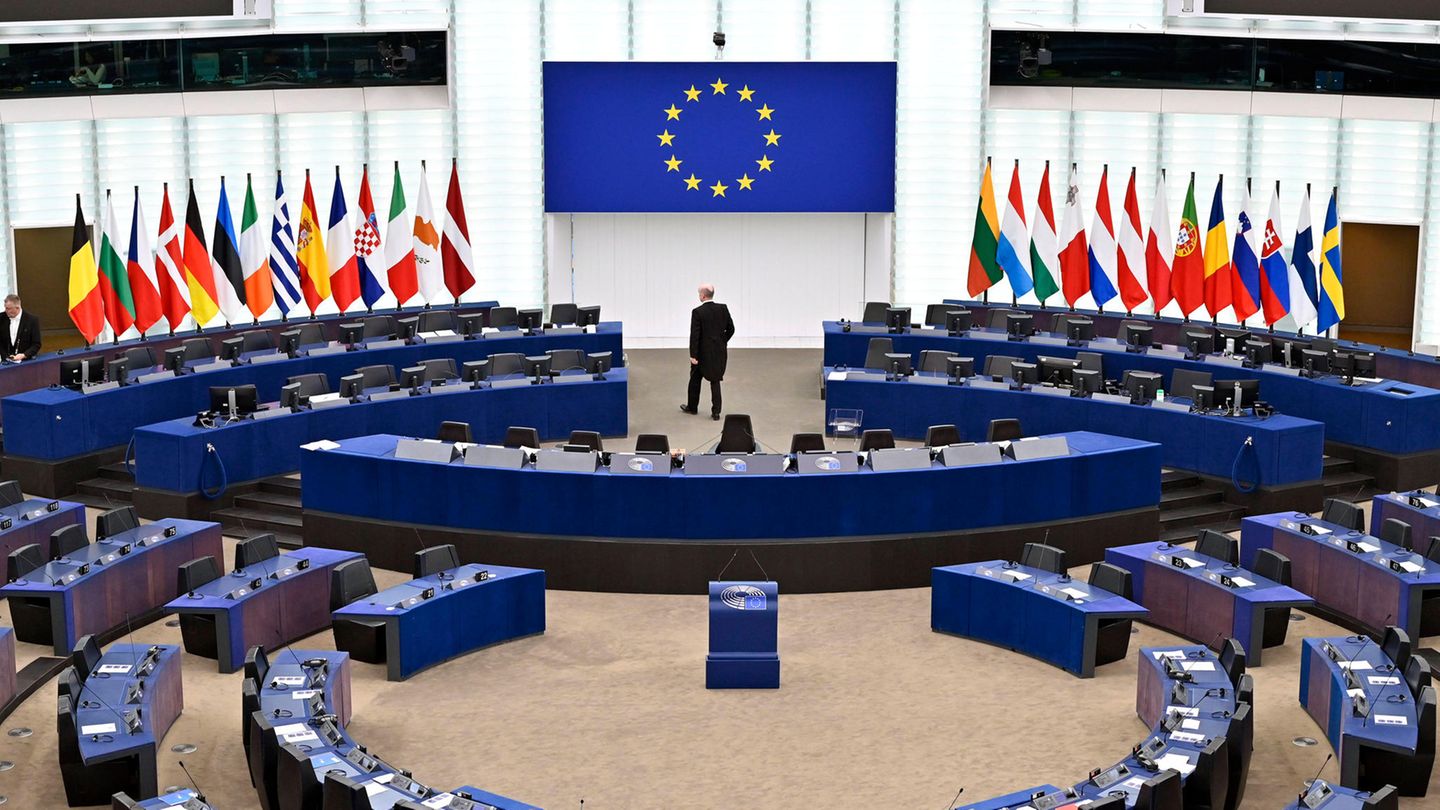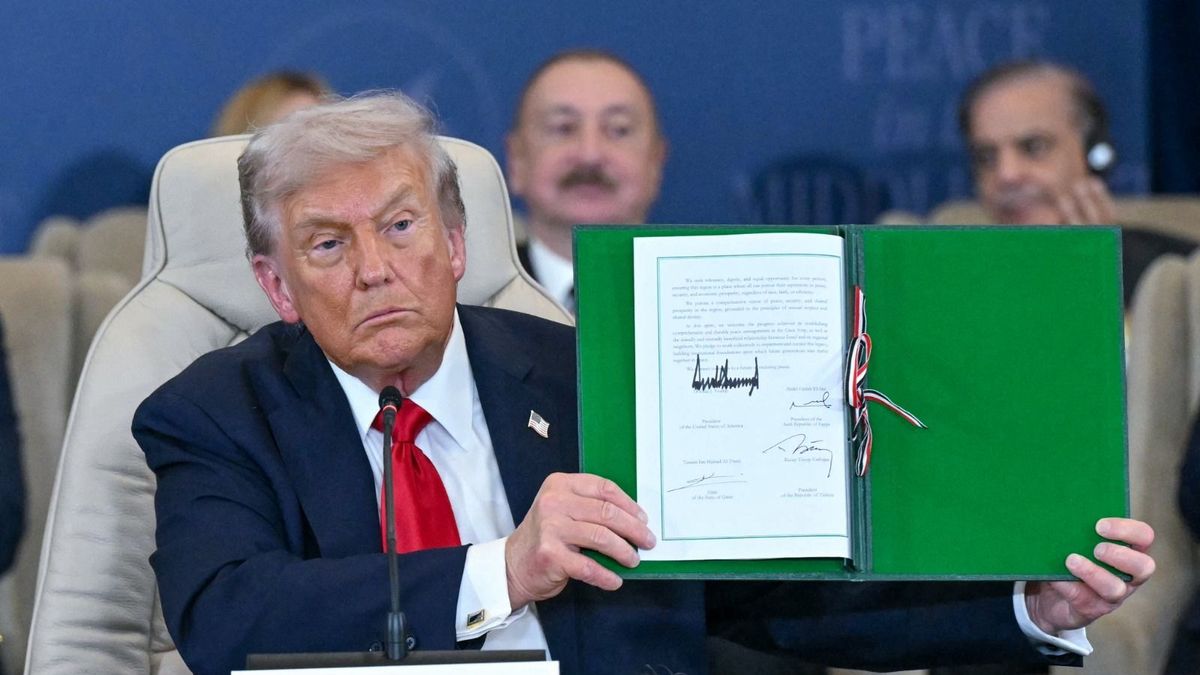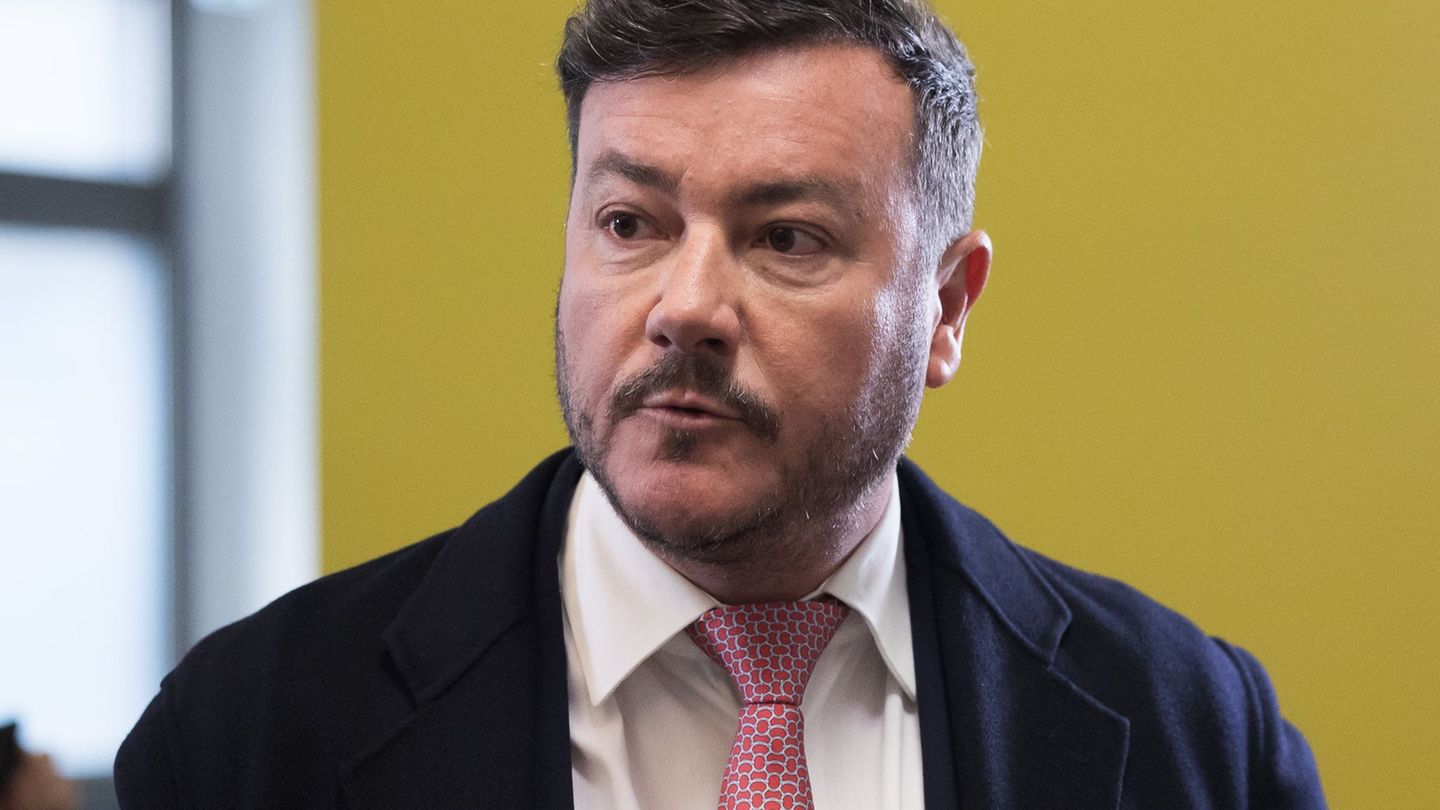There are good reasons why powers like China are interested in EU representatives. The people’s representatives have a say in more and more economic issues, including international trade.
This is original content from the Capital brand. This article will be available for ten days on stern.de. After that, you will find it exclusively on capital.de. Capital, like the star to RTL Germany.
Have MEPs or their staff accepted money from Qatar, China or Russia? Investigators are currently looking into such questions. Non-EU states are increasingly trying to influence and manipulate Europe – and may have enlisted European representatives to do so.
The investigations into Qatar Gate, the 2022 corruption scandal involving Greek Vice President Eva Kaili, are still ongoing. Meanwhile, an employee of AfD top candidate Maximilian Krah is being investigated in another matter: Jian G. is suspected of having “repeatedly passed on information about negotiations and decisions in the European Parliament” on behalf of a Chinese secret service. The Federal Prosecutor’s Office speaks of “agent activity for a foreign secret service in a particularly serious case”. Krah’s membership of the Committee on International Trade may also have aroused the interest of suspected Chinese spies.
Krah denied to the “Süddeutsche Zeitung” that Jian G. had access to classified documents. But the allegations also highlight the fact that the European Parliament plays a much more important role in economic policy than is generally perceived – including the control of geopolitically sensitive data. The powers of the soon-to-be 751 representatives should not be underestimated. Although they do not have a right of veto, they are involved in many decisions in exchanges with the EU Commission and the Council of Ministers. An overview:
1. Foreign trade
The EU Commission negotiates new trade and investment agreements between the EU and third countries on behalf of the member states, which issue a mandate for this. This basic mandate often remains secret. In order to avoid the other side revealing their tactical and strategic cards, the content of the negotiations is kept secret – for example, about desired market access or sensitive issues of food and environmental standards. MEPs are given access to specific text passages or position papers, albeit on a limited basis and with a duty of confidentiality. Parliament also has the right to propose changes to the mandates.
Without Parliament’s approval of the outcome of the negotiations between the EU Commission and the Council of Ministers, EU trade agreements cannot enter into force. This gives MPs leverage to influence content. The free trade agreement with Vietnam, for example, which received the green light from Parliament in 2020, is the first agreement of its kind to contain provisions on ecological, social and democratic sustainability. At the urging of the people’s representatives, Vietnam is committed to improving workers’ rights: by ratifying International Labour Organization conventions on the abolition of forced labour and freedom of association.
Parliament has pushed through changes to the trade agreement with Canada (CETA), which came into force provisionally in 2017, to improve workers’ and consumers’ rights and environmental standards. Economists are calling on the parties in the European elections to boldly advocate for new agreements with strategic partner countries in order to strengthen the EU’s geopolitical position – also with regard to the supply of essential raw materials – including with Australia, Malaysia and the Mercosur states.
2. Household
Parliament has considerable influence on the EU’s financial priorities because it can propose changes to the EU budget to the EU Commission and must ultimately approve the budget. During the negotiations in 2020 on the largest multi-annual financial package in the history of the EU, for example, MEPs achieved an increase in funding for flagship programs such as EU4Health (health), Horizon (research) and Invest EU (investment program) by 16 billion euros. Parliament pushed through more money for environmental goals and medium-sized companies that have suffered from the corona pandemic.
The Invest EU program provides 26 billion euros in guarantees in the EU budget. This is intended to stimulate strategic investments from private and public sources totaling 400 billion euros between 2021 and 2027. Invest EU is part of the Next Generation EU recovery fund. With this economic stimulus package worth 750 billion euros, the EU wants to cushion the effects of the corona crisis and make the European economy more resilient. The money is primarily intended to promote digital and green transformation. At the urging of Parliament, 30 percent of EU funds are earmarked for climate protection.
3. Competition policy
A competitive market should be a driver for quality, low prices and innovation. The EU Parliament is committed to ensuring that the internal market functions and that consumers’ economic interests are protected. To this end, it monitors the EU Commission’s competition policy, can investigate violations and commission audits.
The latest annual report on competition policy calls for shorter antitrust proceedings. It also warns against a subsidy race with the “US Inflation Reduction Act” and urges that state aid should only be granted in a targeted manner, for a limited period and with added value for strategically important projects.
Parliament was also one of the first institutions to speak out in favour of rules for online platforms to protect European online users from the dominance of US tech companies. A declaration set out EU requirements for digital rights and principles. This was followed by the co-creation of the groundbreaking laws for digital services and digital markets and the world’s first comprehensive attempt to regulate artificial intelligence. In this way, Parliament is doing its part to combat the threat of market concentration and dominance.
4. Industrial policy
In recent years, economic policy in the EU has played an important role, especially for the green and digital transformation. The European Green Deal by EU Commission President Ursula von der Leyen provides the framework here. She is currently applying for a second term in office. In order to achieve the goal of climate neutrality by 2050, industrial policy is also an essential part of the Green Deal.
Individual parts of the Green Deal were watered down by Parliament, some even by von der Leyen’s own EPP party family. The deal is considered to be in trouble. While in recent years there has been a broad consensus across party lines in parliament for climate and environmental protection measures, in the future green solutions – including in the European Parliament – will be more closely examined for their contribution to economic competitiveness. This is at least the assessment of scientists. If the election results in a shift to the right, parts of the Green Deal could either not be continued or even reversed.
After the election, Parliament will have to deal with the emerging priorities of the heads of state and government, who adopted a new “deal for competitiveness” in April. The key words of this deal are the internal market, reducing bureaucracy, research and innovation, and trade.
5. Sustainability policy
The European law on corporate due diligence along supply chains (CSDDD), which actually appeared in the Commission’s 2018 action plan for “Sustainable Finance”, met with a lot of opposition. For the transition to a sustainable economy, the plan included expanded obligations for corporate sustainability reporting and the EU taxonomy. The European Parliament’s first position on the CSDDD contained countless tightening measures – a total of 381 amendments were proposed, which were negotiated in tough negotiations with the EU Commission and the Council of Ministers. In the end, the directive on human rights and environmental due diligence was watered down in the Council of Ministers, but it has now been finally adopted.
The European Parliament has repeatedly called for stricter accountability requirements for companies – the Social Democratic rapporteur for the CSDDD spoke of a turning point in the understanding of the role of companies in society: the future belongs to companies that treat people and the environment sustainably, and not to those that have made a business model out of exploitation and environmental damage. In this sense, a regulation on deforestation-free supply chains, on conflict minerals and on a ban on products produced using forced labor on the EU market were also passed during the legislative period.
Source: Stern




